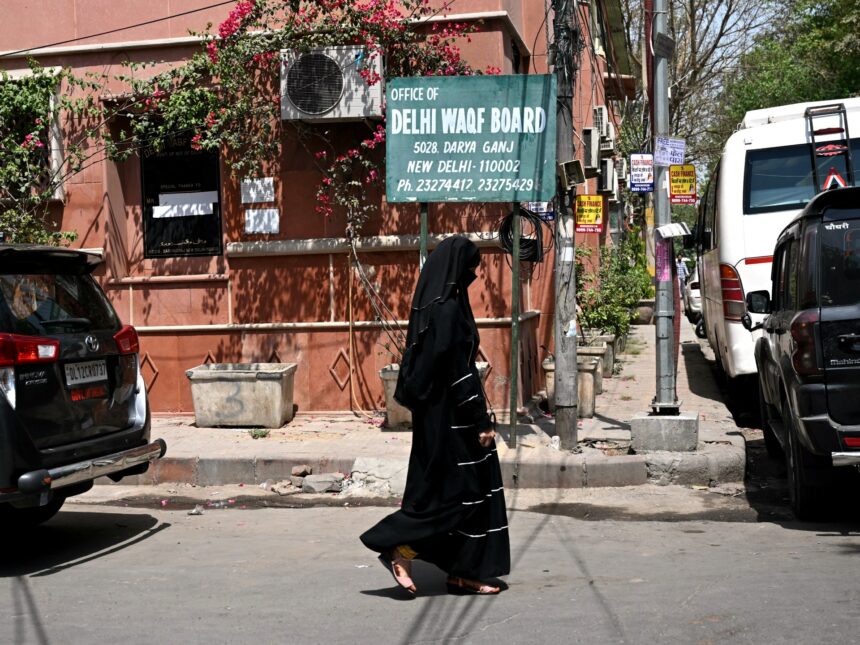Imagine this: a 100 -year -old bungalow, built by his great -grandfather, a quiet and serene place dedicated for decades to a single noble purpose: charitable work. Its doors have always been open to those in need, a compassion and service shelter. This is not just a building; It is the legacy of your family, a responsibility transmitted from your grandfather to your father and anyway to you.
Then, overnight, everything changes.
A new law. A eliminated clause. A lonely government official who is in a distant hill, raises his hand to the forehead, surveying the land and points casually. “That,” he says. “I don’t think the earth, or the property in it, is entrusted to you or the aims that has dedicated it.” With bureaucratic calm, he declares that the land is the property of the government. Now you are an invader. From that front moment, the earth ceases to be under your guardianship. The State intervenes and assumes control. And so, the Bungalow care for your family for generations and the use for goodwill, is no longer under its tutelage.
There is no process. They say there will be an investigation. Potally. They do not give you date, or deadline. Until listening to them, all you can do is wait. Outside. For you now you need permission from the State to enter the building that your ancestors built and commissioned protection.
Does dystopian sound? Not for Indian Muslims, for whom this is the reality lived under the law of the WAQF amendment, a legislation that converts the fundamental principles of property, due process and religious neutrality in their head.
Waqf, by its own definition, is a perpetual endowment for God: Meean to benefit the community by providing services, such as education and medical care. It is not “property” by an individual. He is a confidence hero, safeguarded by a mutawalli (custodian) and protected, one would assume, by the State.
But the WAQF amendment law, 2025, turns that assumption.
Gone is the problematic clause that allowed the Earth to be declared “WAQF” by the user: the traditional understanding that the country’s hero in confidence for charitable purposes must be protected from arbitrary statements, based on historical use. Instead, we now have unilateral executive control. As a result, a single government official can now decide, with the wave of one hand, if a property is WAQF or the government. And to help you in this task, it will not be noticed by the evidence, it is not seen in due process and released from the need for justification. An opinion. A notification. A perfectly legal expression. And the appeal process? Lovely circular. They appeal to the same machinery that accused you.
The amended law, in a dazzling secular theater exhibition, now requires that non -Muslims are included in WAQF boards. A demand that does not face another religious trust. The temple trusts are not asked to inducate the magnets. Church committees do not need agnostics. But the Muslim Waqfs, under this disconcerting law, amended, must open their management to those without participation in their theology, tradition or erudition. At what point does inclusion cross the line towards dilution? One might ask. Equality, in this version, seems to be little more than selective intrusion.
Then comes the audit. The central government now has the right to order WAQF properties through its own designated auditors. Transparency, they call it. To verify corruption inside the WAQF boards. But if you interde entering their eyes, you will notice that it is suspected as supervision without the necessary controls and balances. The guardian dog, after all, is rarely impartial when he informs the kennel.
This is not a front assault. It is a gentle erase.
There are no excavators. There are no headlines. Only notices, foot notes and changing definitions. And all perfect “legal.”
So yes, the Bungalow is still standing. Its walls are intact. Its doors still balance. But the meaning behind them: the sacred concept of Waqf, once a gift for God, now rests at the discretion of the mood of the State.
What we are witnessing is not a robbery in the dark: it is something much more elegant. A reconfiguration of the property, carried out not through gloomy intermediaries but by the machinery of the State itself. There are no land mafias here, only legislation. There are no background offers, only politics. And so, with the quiet certainty of Officer, a system that once destined to protect the charitable trusts is now perfectly positioned to absorb it: a firm, a “determination”, a hill look at the same time.
This is not a reform. This is the appropriation of assets: slow, calm and absolute. Designed with paperwork, no guns. Because in the end, this is not a Hindu-Muslman problem, it is real estate.
The opinions expressed in this article are typical of the author and do not necessarily reflect the editorial position of Al Jazeera.



